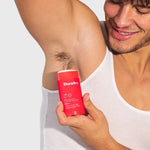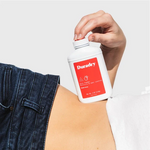Although most of the time sweating should not be a sign of alarm, since it is due to a natural process of the body.
When we sweat the nervous system are trying to restore the normal temperature of our body because to an excess of heat that can be due to a change in the climate, physical exercise or some spicy food.
But, there are other reasons that can be triggers of an excess in perspiration and that should not be overlooked. Low blood sugar can be one of those triggers and should be taken very seriously.
What is low blood sugar?
Hypoglycemia is the low level of sugar in the blood. A blood sugar level below 70 mg/dL (3.9 mmol/L) is low and can hurt you. A blood sugar level below 54 mg/dL (3.0 mmol/L) is serious and requires immediate professional action.
People may be at risk for low blood sugar if they have diabetes and are receiving insulin or any other medicine to treat the disease. People who produce too much insulin after eating may also be at risk.
Symptoms of Low Blood Sugar
- Tremors
- Nervousness or anxiety
- Sweat
- Chills
- Irritability or impatience
- Confusion
- Accelerated heartbeat
- Feeling hungry
- Feeling dizzy and weak
Can hypoglycemia cause excessive sweating?
The answer is yes.
When blood sugar levels drop drastically, excess adrenaline is produced, and hormones such as epinephrine and norepinephrine are activated, which activate the nervous system in order to raise blood sugar levels. The production of these hormones causes additional symptoms such as sweating, fear, and anxiety.
Why does blood sugar drop suddenly?
Blood sugar can drop quickly if you don't eat enough food or skip meals. It may also be due to being receiving a very high dose of insulin. Exercising more than usual can also cause hypoglycemia and producing excess insulin after eating is also a reason why blood sugar drops.
What diabetes medicines can cause excessive sweating?
Insulin, glyburide (Glynase), glipizide (Glucotrol), and pioglitazone (Actos) are common medications that may cause sweating, due to alterations in blood sugar. If you start experiencing sweating, chills, shakiness, and/or dizziness, check your blood sugar to make sure that it isn’t too low.
Can you have low blood sugar without being diabetic?
It is not common for non-diabetic people to have low blood sugar. If you notice any of the symptoms of hypoglycemia you should seek medical assistance.

The Link Between Diabetes and Hyperhidrosis
Some causes of excessive sweating are related to diabetes. Hyperhidrosis can occurs with obesity, which often accompanies diabetes, because overweight people has more difficult time in control their body temperature.
Another cause could be diabetic autonomic neuropathy, caused by damage to the nerves that control funtions like the bladder, blood pressure and sweating. People with this condition are more likely to experiment gustatory sweating. They tend to sweat profusely in head and neck when eating or drinking.
Low blood glucose can trigger night sweats. People taking insulin have more risk to experiment a low blood sugar.
When the blood sugar returns to normal levels, the sweating should stop, so the best way to avoid night sweats is to control blood glucose. Sometimes you just need to do simples adjustments in your diet or in your medication.



